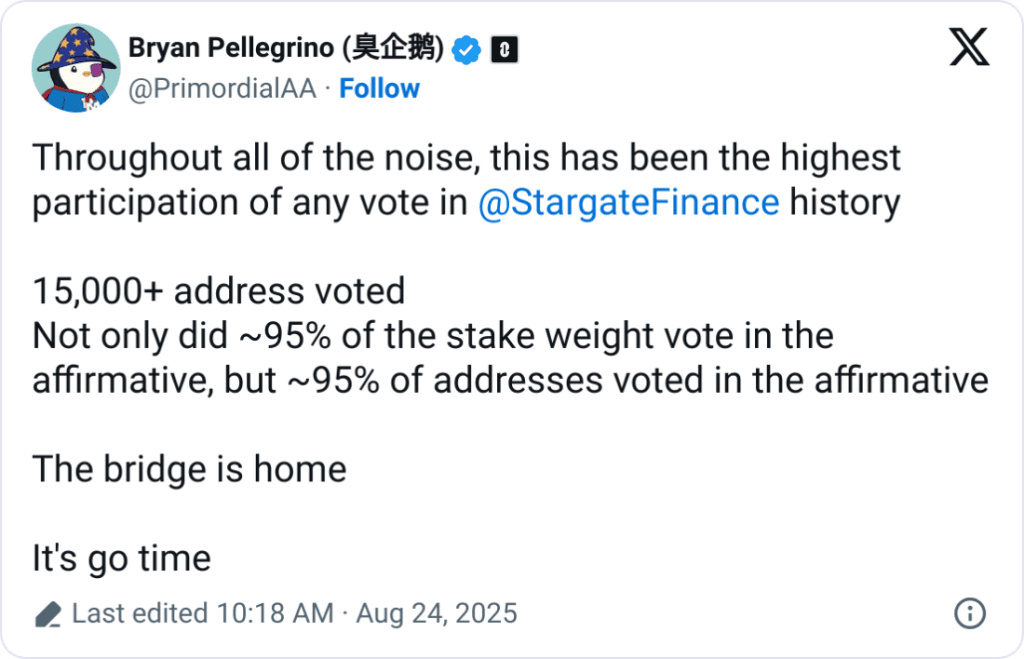LayerZero has secured the acquisition of Stargate, the cross-blockchain liquidity protocol it originally launched in 2022, after the Stargate community voted overwhelmingly in favor of a revised $110 million deal.

On Sunday, more than 15,000 addresses participated in the vote, with 94.76% of the 7.2 million STG tokens cast supporting the LayerZero Foundation’s proposal. Just over 5% opposed it. According to co-founder and CEO Bryan Pellegrino, the decision marked the “highest participation of any vote” in Stargate’s history, with both stake weight and individual addresses aligning at around 95% approval.
The outcome came after a chaotic weekend that saw rival platforms Wormhole, Axelar Network, and Across Protocol push for Stargate to reconsider LayerZero’s offer. Wormhole, in particular, pitched a $120 million all-cash counteroffer that would have paid Stargate stakers three times projected six-month revenues upfront. Across and Axelar also signaled they were prepared to submit bids if the process were extended.
Despite the late surge of interest, Stargate Foundation lead Angus Lamps said the vote could not be paused, though parties that signed non-disclosure agreements could still conduct due diligence.
LayerZero’s original proposal faced pushback for directing Stargate’s revenue primarily toward buybacks of its own ZRO token, with community members calling the terms unattractive for STG holders. The revised deal split revenues, allocating half to Stargate stakers and half to LayerZero buybacks, a change that proved decisive in swaying the vote.
Under the approved terms, all circulating STG will be converted into LayerZero’s ZRO token at a ratio of 1 STG to 0.08634 ZRO.
Stargate, designed to enable native cross-chain transfers without relying on traditional bridges, has been central to LayerZero’s interoperability ambitions. The reacquisition brings Stargate fully back under LayerZero’s umbrella just as competition among cross-chain protocols intensifies.
With the vote finalized, LayerZero has outmaneuvered its rivals, at least for now, but Wormhole’s aggressive counteroffer suggests that consolidation in the interoperability sector is far from over.









